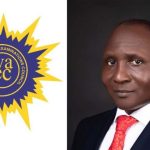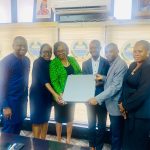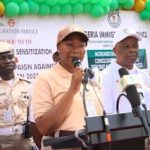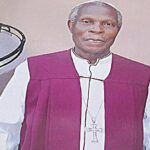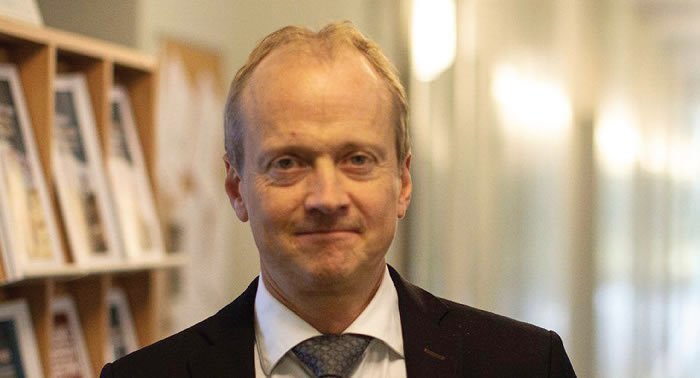
The Swedish Ambassador to Nigeria, Carl-Michael Gräns, speaks to ALEXANDER OKERE about the bilateral relationship between the two countries, the 2023 general elections, insecurity, among other issues
How would you assess economic cooperation between Nigeria and Sweden in the previous years and what are your expectations this year?
I haven’t seen the figures from last year yet. We are waiting but we know it was low because of the pandemic but still, my impression when talking to the companies – and we had a business meeting just earlier today (Thursday, February 3, 2022) – is that they are doing pretty well even during the pandemic. They have found ways to move on and to get the imports of their products and to meet at our business meetings virtually, perhaps. So, they seem to be rather positive for the outlook of 2022. That’s good.
I want to continue the cooperation with different states and continue to support the newcomers and the youth. Many of the new start-ups are from young people. Sometimes, Swedish and Nigerians meet, go to school together and start a company. And if it is a good thing, which it usually is, I want to support it.
There were conversations last year about clean energy and a smart city in Lagos. Do you think progress has been made in that regard?
I met with the (Lagos State) Governor, (Babajide) Sanwo-Olu, and he is very much engaged in so much respect and so many products and, of course, Lagos is a very big city and a lot of things are going on. But Lagos also has big challenges as we all know when it comes to traffic and when it comes to waste management. So, I think that was one of the topics in the Nordic Nigeria Connect last year and we wanted to show Swedish and other Nordic companies we are active and quite successful in these areas; that we could, perhaps, cooperate and make Lagos city a great place to live; I mean it’s really about making the environment better for people.
Apart from clean energy, what other areas of collaboration exist between Sweden and Nigeria?
It is really about the companies. I am a representative of the government and I try to present companies as I did to the (Lagos) governor today (Thursday, February 3, 2022) and during the Nordic Nigeria Connect; and they are private companies and they also have special competencies. But they also have a kind of Swedish thinking when it comes to the environment and social development. Scania makes buses and people know that but they also look into energy and how to produce energy in a friendly way and biofuel in different ways. They also have training for female drivers so they are into gender equality and this kind of broader thinking is typical of Swedish companies. They don’t just deliver a product and then leave; they have a thinking of a broader picture.
We have had trade relations for many years – since independence actually of Nigeria – and some of the companies present came in the 60s and 70s. ABB, for instance, came in 1977. But we have new sectors coming and for the last few years, I would say ed-tech (education and technology), fin-tech, health care. So, it’s quite interesting to see new sectors of cooperation coming. Then we have the old ones still present. So, I think that we are broadening our economic and commercial relations. When it comes to Nigerian exports to Sweden, it has been mainly oil but we want to diversify and see more products.
Let me add that we have fashion. We had a Swedish-Nigerian fashion show and I think it’s really exciting to see two different fashion scenes that don’t know each other very well and we want to link them together and we want to continue. It is also about presenting Nigerian fashion that could be brought to Stockholm.
The Swedish government recently opened a Lagos consulate. What prompted that decision?
The reason is to get closer together and hopefully, we will come out of the pandemic and travel restrictions would be lifted. We still have until the last of March and Nigeria has some restrictions as well so it goes in both directions and that makes it difficult to do business. We want to be part of the economic recovery back to business in a way after the pandemic. I think we would be gradually stepping out of it. We are very happy to be in Lagos.
Many countries have recorded an increase in migration for different purposes. What can you say about the movement of Nigerians to Sweden?
Well, I know that the number of Nigerian students is growing. Every year, we see a growing number of Nigerians going to study in Sweden and we want that to continue. Young, talented Nigerians are getting an education in Sweden. Some of them start companies and go back to Nigeria. So, this is also about social development, not only economic development but in a broader perspective, social development.
Do you see any potential for tourism in Nigeria?
I do but it is linked to security. Nigeria has nature, animals and everything but if people don’t feel secure or safe, they won’t come. So, it’s a pity. I do hope that security would be better and people would come to Nigeria for pleasure.
Insecurity is a global issue and a major challenge in Nigeria. What can Nigeria learn from Sweden’s approach?
That is difficult because we have challenges in Sweden too when it comes to insecurity. It used to be a very safe country but we also have challenges like many countries in Europe and all over the world. But I think Nigeria also has the kind of violent extremism in the North-East and that is a special, of course, issue.
The police are crucial in this and in Nigeria, you have federal police but the states don’t have the police. I met many governors who think that they should have the possibility to have police of their own. I mean, I have no opinion on this; it is a Nigerian issue. But in the longer term, there should be a focus on social and economic development, livelihood for people, education, women empowerment and gender equality. Those are very general issues but the basis of the future society. When people have a good livelihood and good education, they usually don’t rob other people or kidnap other people. If people have alternatives, it would reduce criminality.
Nigeria is preparing for general elections next year. How can the country strengthen its democracy?
Nigeria is a democracy. I’m quite confident when it comes to Nigerian democracy. We are all struggling with democracy – it’s nothing fixed – and so is Sweden. You have elections coming up next year and you can already see people positioning for this. It is natural that newspapers focus on personalities and who is who but actually when it comes to the elections, I would hope there would be more discussions about politics. What do Nigerians want to do with this country? What do they want to develop? So, we should talk about the problems that we have in the country.
We can see the same problems in Sweden. Newspapers usually like the political game. But the voters are not interested in the game. They want to know the facts and how their daily lives could be improved. That is what they want to know and they can choose.
What have you observed about Nigerian culture?
Art is very developed in Nigeria, in Lagos, and we have some good galleries in Abuja, I think. So, it is art and traditional music. I also eat Nigerian food.
Do you have a favourite yet?
I would, perhaps, say egusi soup. I think it is very good. I also like jollof if it is well done and a little bit spicy.
How would you describe what you feel when you eat egusi soup?
(Laughs) well, I like the texture and I like the taste. It is special, coming from the seeds of melon. We eat watermelon in Sweden. We import but I never knew that the seeds could be ground and made in flour like that. I really like it and my chef does it very well.
Copyright PUNCH.
All rights reserved. This material, and other digital content on this website, may not be reproduced, published, broadcast, rewritten or redistributed in whole or in part without prior express written permission from PUNCH.
Contact: [email protected]





